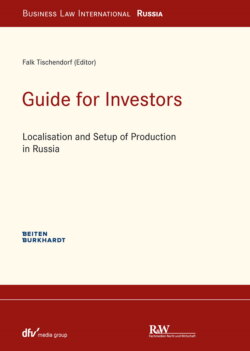Читать книгу Guide for Investors - Falk Tischendorf - Страница 9
На сайте Литреса книга снята с продажи.
3. Market and volatility
ОглавлениеCooperation with the Ministry of Economic Development, the Ministry of Industry and Trade, and the customs authorities plays a crucial role in practical implementation of the resolutions. Over time, this cooperation has become more professional, more like collaboration, both successful and effective.
The system was put to a serious test in 2015 when the ruble lost 50 % of its value over a very short period of time in late 2014 and imports became so expensive that the indicated levels of localisation were unattainable for many companies.
Given the unpredictability of the crisis and the limited amount of time available to react, the crisis management measures of the Russian authorities can be deemed effective. A solution for 2015 was found thanks to intensive dialogue between the authorities, industry and associations. The planned increase in the level of localisation in 2015 was abandoned.
The automotive industry has experienced several crises since Resolutions No. 166 and 566 came into effect: the financial crisis of 2009, when the Russian market contracted to half of its former size, and the fall in oil prices and depreciation of the Russian currency in combination with the sanctions since 2015. These situations required quick reactions from the affected enterprises, as well as a high level of flexibility and the ability to adapt to mitigate the negative impact as much as possible.
Throughout all the crises it was clear that the Russian government was adhering to its goals – sustained industrial development, with a reliance on and support for foreign investors, and an attempt to maintain as far as possible a stable and predictable strategic and operating situation.
Experience shows that if a company operates within the framework of Russian law and follows the rules on compliance, and if it contacts the right decision-makers in a timely manner, solutions can usually even be found for complex problems.
